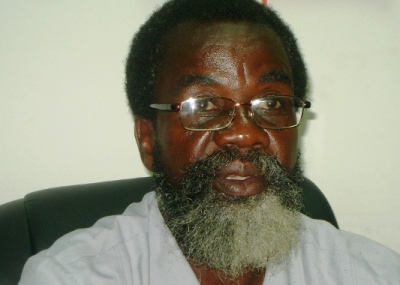South Sudan will not allow looming western sanctions: official
September 28, 2015 (JUBA) – A senior South Sudanese official at foreign service office said his government will not allow what he called western countries to impose sanctions on officials or the government over non implementation of the recently signed peace agreement in August between president Salva Kiir and armed opposition leader, Riek Machar.

“We have said time and again that this is not the time for sanctions. We have told our partners and friends in the region, the international partners and friends that it is time to stand with the government and the people of South Sudan in the implementation of the peace agreement which has been signed,” said Gbandi.
“It is not time to frustrate these genuine efforts and demonstration of commitment. The clock should be allowed to tick and move ahead to the direction of implementation,” he said.
The second top official at the foreign service ministry explained that the government was determined to engage all who have interest in the resolution of the conflict in the country through peaceful dialogue rather than threats.
“We are open to talk to anyone who is interested in the peaceful resolution of the conflict. We have not shut our door for constructive engagement. Our doors are opened and they will continue to be opened.”
He said that the people of South Sudan did not want to see sanctions imposed whether on individuals or the nation at large, and appealed to the international community to instead provide support in the implementation of the deal.
He pointed out to the preparations by government forces to move out of Juba in many directions and establish multiple bases on roads to the west, east, north and south, 25km away from the national capital.
“Our forces have started preparation to leave Juba and we have signed the implementation matrix of the implementation of the ceasefire arrangement. This is a clear demonstration of the commitment of the government to implement the agreement. So why talk of sanctions again,” he said.
Gbandi commended again Russia, Angola and Venezuela governments which recently blocked a US-initiated sanctions at the UN Security Council which sought to impose sanctions on South Sudan’s army chief of general staff, Paul Malong Awan, and Johnson Olony, a former government allied militia general, turned rebel commander.
UN however said it will further discuss the possibility of sanctioning the two or more military and political leaders seen to be obstructing the implementation of the peace accord.
The move at the Security Council by the Russian representative to the council followed a summit in Moscow at which Sudanese and South Sudanese foreign ministers asked Russian government to help them block any sanctions on the two countries.
The United Nations has warned the situation in South Sudan has actually worsened since a peace deal was signed by the president and the opposition leader last month under intense international pressure.
Fighting has been continuing and more than four and a half million people are now depending on food aid. US is pushing for an arms embargo and sanctions and the next steps against the world’s youngest country will be discussed on the fringes of the UN General Assembly this week.
(ST)
